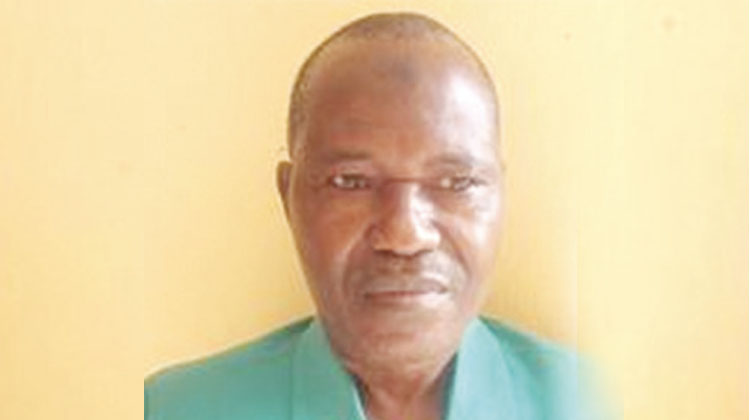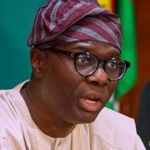
At the release of the four-month fiscal report on the Nigerian economy while engaging in a public consultation on the 2023-2025 Medium Term Expenditure Framework/FSP last month, the Minister of Finance, Zainab Ahmed, informed that the projected fuel subsidy for 2023 will be N6.7 trillion! She explained that the subsidy projection was based on business-as-usual or reform scenarios in which the current subsidy regime will be retained, at least for the first half of 2023. In fact, she opined that the expected deficit in the incoming budget will be about half of the budget itself. That can only be a “Budget of consolidation of hardship.”
Two months before that consultations, emerging economic fundamentals have shown that the country must be cautious in its future economic policies and plans. The worrisome issues emerging and spreading were insecurity in the oil production and distribution markets with attendant increase in oil theft; the rising cost of production and consumption or inflation in both demand and supply spheres; the massive depreciation of naira with the concomitant high cost of imports and implications for cost of living; the overborrowing from domestic and foreign markets with the resultant drain on dwindling revenue and under-reporting of revenue inflow through data falsification, deliberate stealing as exposed by the activities of the ex-Accountant General of the Federation, Ahmed Idris, and his team as well as through unapproved deductions by agencies like the NNPC.
Such background scenario should have formed the basis for preparation for the next year’s budget and therefore ‘business unusual’. The minister chose to ignore the facts before her and embraced the ‘business-as-usual’ attitude. That is why almost a month after that consultation, new economic reports are still pointing at fuel subsidy, even at quantities that have no basis and cannot be substantiated except to let us know that personal massive fund appropriation via questionable subsidy allocation lies ahead. While many external sources of lending are drying up, thanks to a cautious approach by international money lenders, the domestic sources, particularly the Central Bank of Nigeria and public sector arm of the capital market, will have to suffer the rapacious nature of fiscal spending. There is no doubt that the government has realised its liberty to deepen the poverty and wretchedness of the citizens. That is what it seems to me. The proletariats, à la Karl Marx, are helpless and a large proportion of the Nigerian elites who are to hold the government accountable are always looking for the easy way out of problems. Many seem to enjoy the way the economy is being run. They are not the conscience of the people as expected.
The present scenario is that the politicians have turned our attention to politicking towards 2023 as if survival till then is guaranteed. We must engage the government on how our economy should be run now and henceforth. We must live well today to be able to listen to campaigns and make decisions in the coming year. Two to three months ago, many countries, including developed ones, were held in the jugular by rising prices of goods and services arising from the Russia-Ukraine war but most of these countries have started witnessing relief because they care. They first introduced policies to lessen the debilitating effects of global inflation and then brought in country-specific policies to improve the conditions of living of their citizens.
Presently, as reported in many newspapers, particularly The PUNCH, economic crisis is worsening, job losses increasing and inflation soars. At the meeting between the National Assembly and members of the Ministry of Finance, Budget and Planning led by the minister last week, the concern was about the worsening economic fortune not what will be put in place by the ministry to change the narrative going forward. A government that had promised 10 million jobs should show grave concern about the worsening job losses. And more job losses are in the pipeline given the fact that some manufacturing firms are moving out while others are on the verge of closing. The economic managers must do something positive that must be clear in the 2023 budget.
A budget contains policies initiated to achieve some objectives and can be used as an instrument of change and flexible in implementation. The 2022 budget needs to be tinkered with in order to accommodate current issues that were not envisaged at the time the budget was conceived last year. Some of the major concerns are what to do with unbridled government spending, the unexpected rising prices, the glaring inability to meet up with proposed revenue, the rising subsidy on fuel and the lingering Academic Staff Union of Universities strike.
The Federal Government needs to cut spending by rearranging or developing a scale of preference to match its spending with its revenue based on important needs. It must start with the gradual removal of fuel subsidy and promotion of domestic production, not by spending money on turn-around maintenance of the moribund local refineries or by encouraging Dangote and other oil companies to start assisting in fuel importation but by encouraging them, as much as practicable to start their domestic production. In addition, to test the viability of the existing refineries, which I think are too old to be maintained, the NNPC can go into a joint venture with foreign companies that can provide some technical expertise. If no such companies come forward, the refineries should be rented out or disposed of in the most cost-effective manner.
By extension, as I advocated elsewhere, legalising the so-called illegal refineries and assisting the operators to refine properly can go a long way to reduce public expenditure. After all, if there is no demand for their products, they would not be in business. Legalising their activities and even giving them crude oil free of charge while they pay tax for production means that the government will not need to pay some people for preventing leaking oil pipelines as no one will wilfully damage the pipelines again. It will mean that there will not be regular repair of pipelines and the attendant cost. There will be revenue from tax and additional legal job creation in the petroleum industry. What is being proposed here is that next year’s budget should not be envisaging humongous petroleum subsidy but domestic petroleum production and revenue generation.
If the single treasury account policy is working, the Minister of Finance should be able to see all revenues coming into the federation account on her table. This implies that she should be able to monitor revenue from all sources and reduce revenue under-reporting, affecting the country’s budget performance. The fact that some people are able to syphon part of the revenue implies ineffective monitoring or failure of the single treasury account machinery.
The ministry should seek approval for a supplementary budget to meet part of ASUU’s demand on the revitalisation of the universities, including outstanding salaries, and thereby reduce further man-hours lost through strikes. Sometimes we look at the strike from the prism of the students attending classes and graduating at the end of their studies. Millions of Nigerians are employed because the schools are in session through their microenterprises. Such Nigerians include owners of hostels, transporters (okada and tricycles in particular), food vendors, booksellers and other micro-businesses in the informal sector as well as formal sector businesses like banks, printers of textbooks and clinics or hospitals that are close to campuses.
Budgets must inspire the people to get involved in production, but in the last 15 years, Nigerian budgets have been couched in consumption conspiracy. The recurrent expenditure often takes 80 per cent of the budget while capital is meagre 20 per cent and hardly implemented. Whenever there is shortfall in revenue, the capital component of the budget suffers. Even the large proportion of the recurrent goes into debt servicing to be able to get more loans and servicing the emolument of the politicians including largely unimplemented constituency projects. Invariably, there is direct relationship between loans and poverty in the land. Also, there is direct relationship between the amount of money expended on the political class and the level of affluence they display in society.




